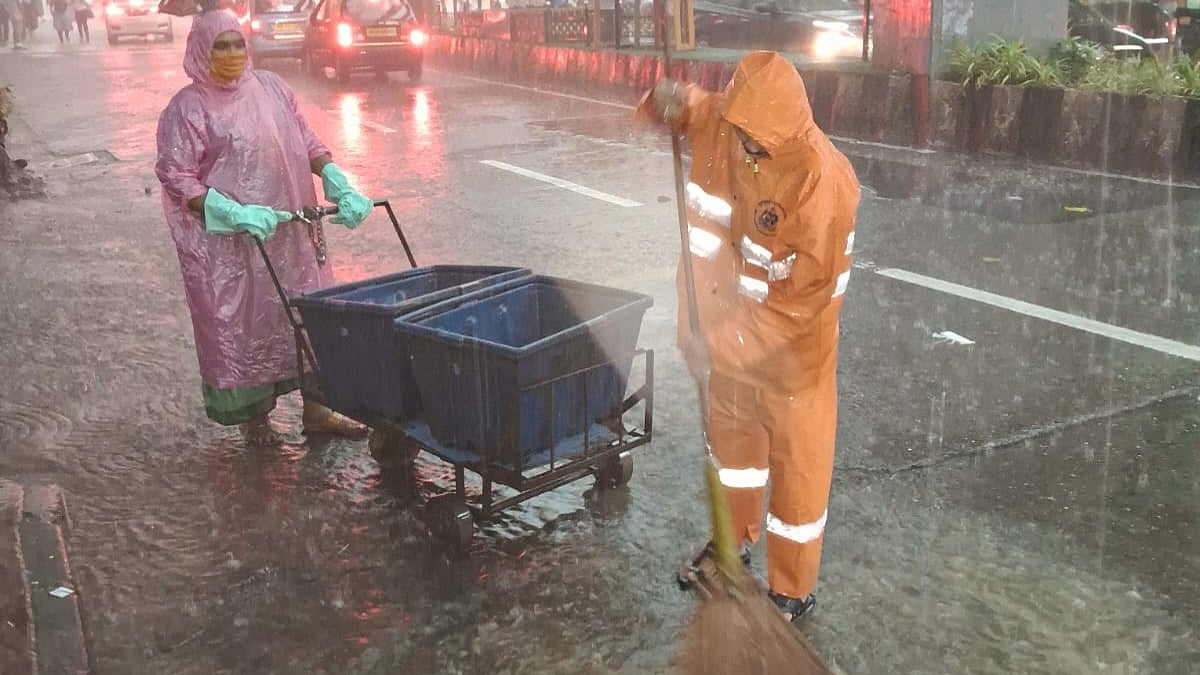First Buses, Now Brooms: What Mumbai Stands To Lose By Privatising Essential Services
On the surface, the upcoming sanitation workers’ strike in Mumbai might seem like another tussle over contracts and job security. But look closer, and you’ll see a deeper issue: a warning sign flashing red about the systematic erosion of public services in our cities.

File Picture | X - @mybmc
On the surface, the upcoming sanitation workers’ strike in Mumbai might seem like another tussle over contracts and job security. But look closer, and you’ll see a deeper issue: a warning sign flashing red about the systematic erosion of public services in our cities.
At the heart of the strike is the BMC’s proposed ₹4,000 crore plan to outsource solid waste collection to private contractors. If implemented, it will displace thousands of sanitation workers who have, for generations, kept the city running quietly, reliably, and with dignity. This isn’t just a workers’ issue. It’s a public issue. And we’ve seen this before, with the slow dismantling of the BEST.
The BEST, once a world-renowned model, now serves as a cautionary tale. Born in 1905 as the Bombay Tramway Company and brought under public ownership in 1947, BEST was set up with the ethos of a cross-utility service. The idea was simple yet revolutionary: surplus generated by the electricity division could sustain affordable public transport. The goal was mobility, not margin.
Yet today, BEST buses are being steadily subcontracted to private operators. The consequences? Longer queues, erratic schedules, safety issues, and a collapse in service quality. The public suffers, while private players trim costs for profit.
Hussain Indorewala, from the citizen-led initiative Aamchi Mumbai Aamchi BEST, rightly points out that buses and trains, not metros, carry the bulk of urban commuters. They are affordable, flexible, and environmentally sustainable. In fact, they are tools of climate action.
The moment we begin to treat essential services like sanitation or public transport as business opportunities rather than public goods, we invite inefficiency, exclusion, and ultimately, failure. Public utilities, whether waste collection or transport, do not exist to generate profit. They exist to serve.
Cities like London, Paris, and Tokyo maintain extensive public transport and sanitation systems despite running them at a financial loss, because the social and environmental returns far outweigh the cost
What the BMC is proposing with its new solid waste management tender isn’t just a change in service delivery. It’s a philosophical shift, from a city built on public care to one structured around private contracts.
Privatisation of essential services doesn’t just displace workers. It redefines what kind of city we want to live in. A clean, liveable Mumbai cannot be engineered through contracts alone. It requires public investment, transparency, and a commitment to the idea that not everything in a city should, or can, run for profit.
Ankieta Kothari is a promoter at Pantheion Real Estate, driving forward a vision of sophisticated, sustainable, and user-centric urban development
RECENT STORIES
-
-
-
-
-